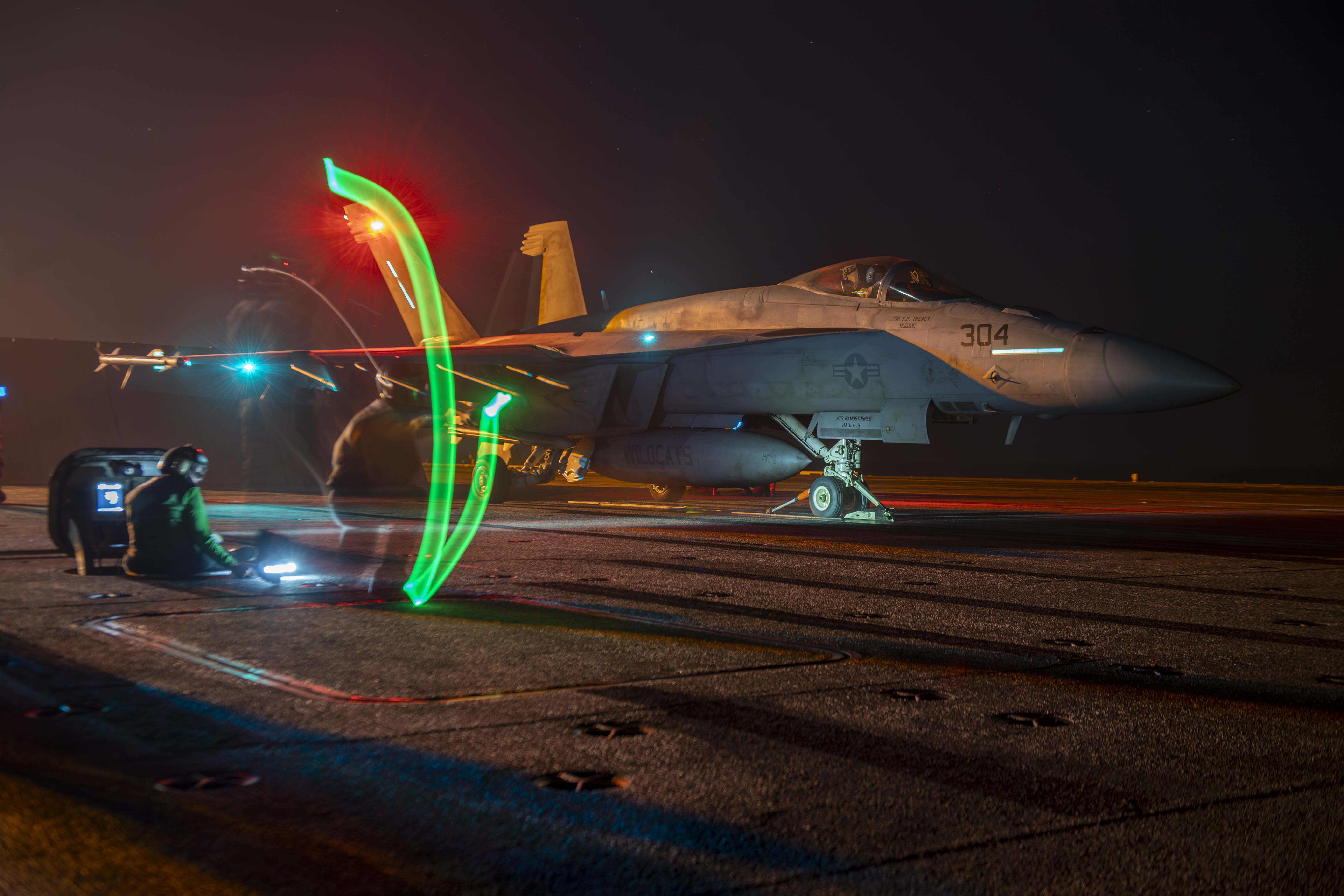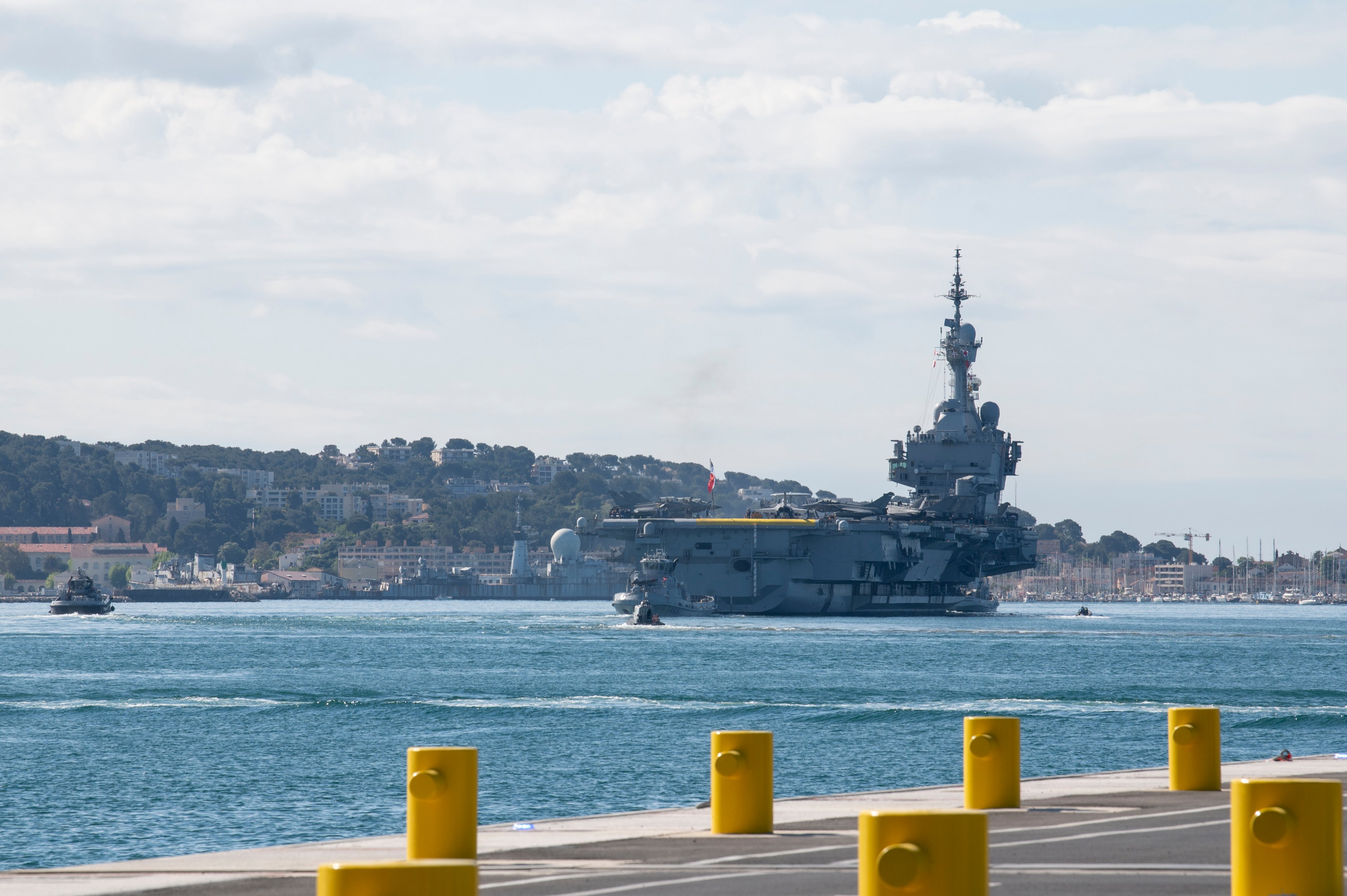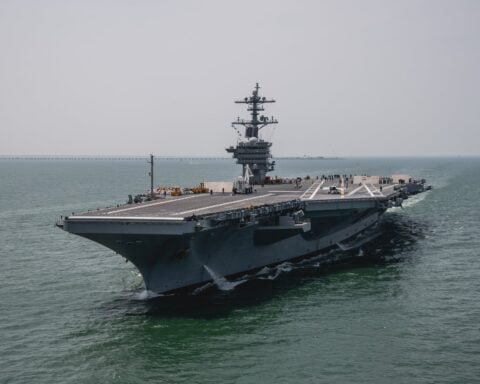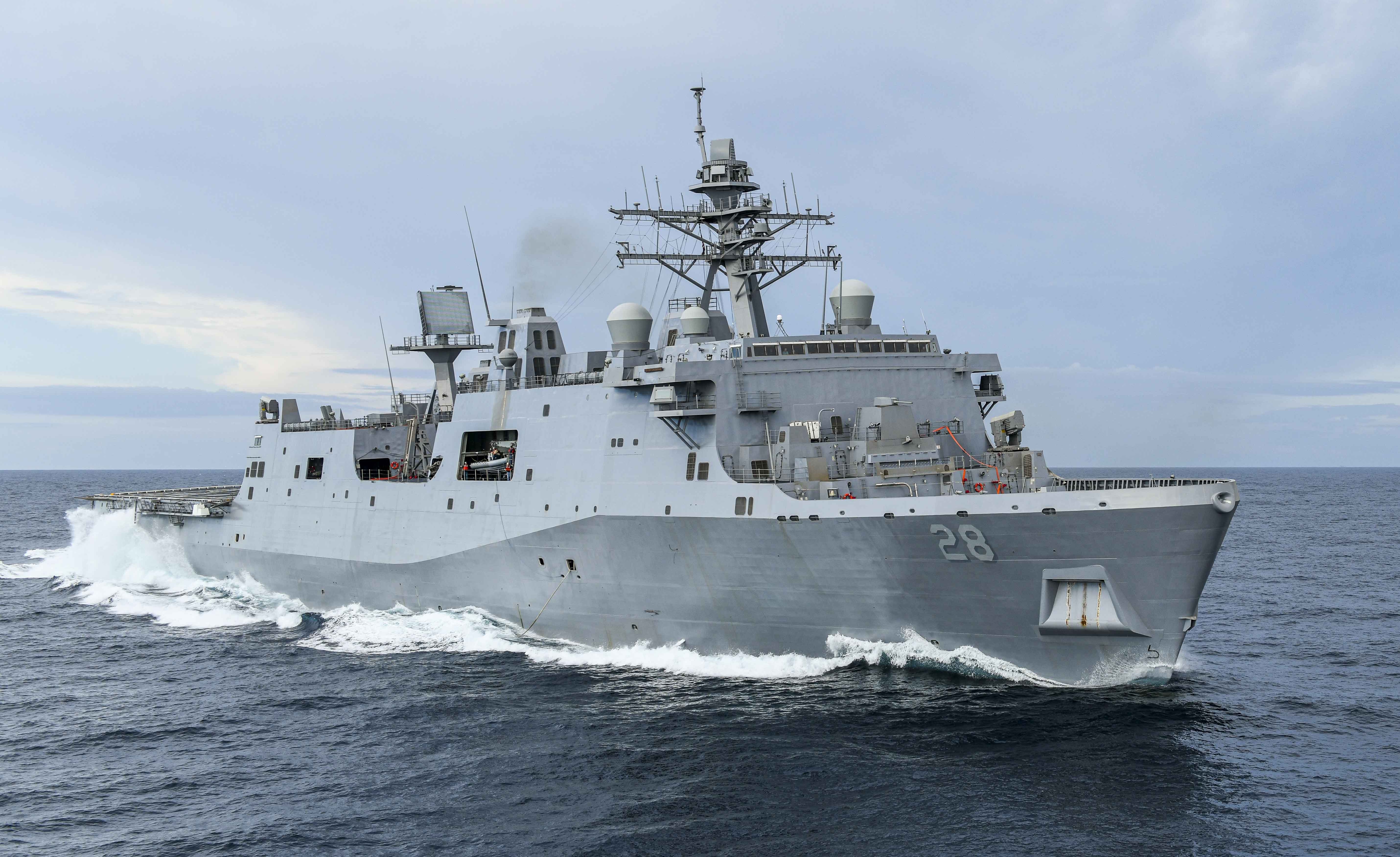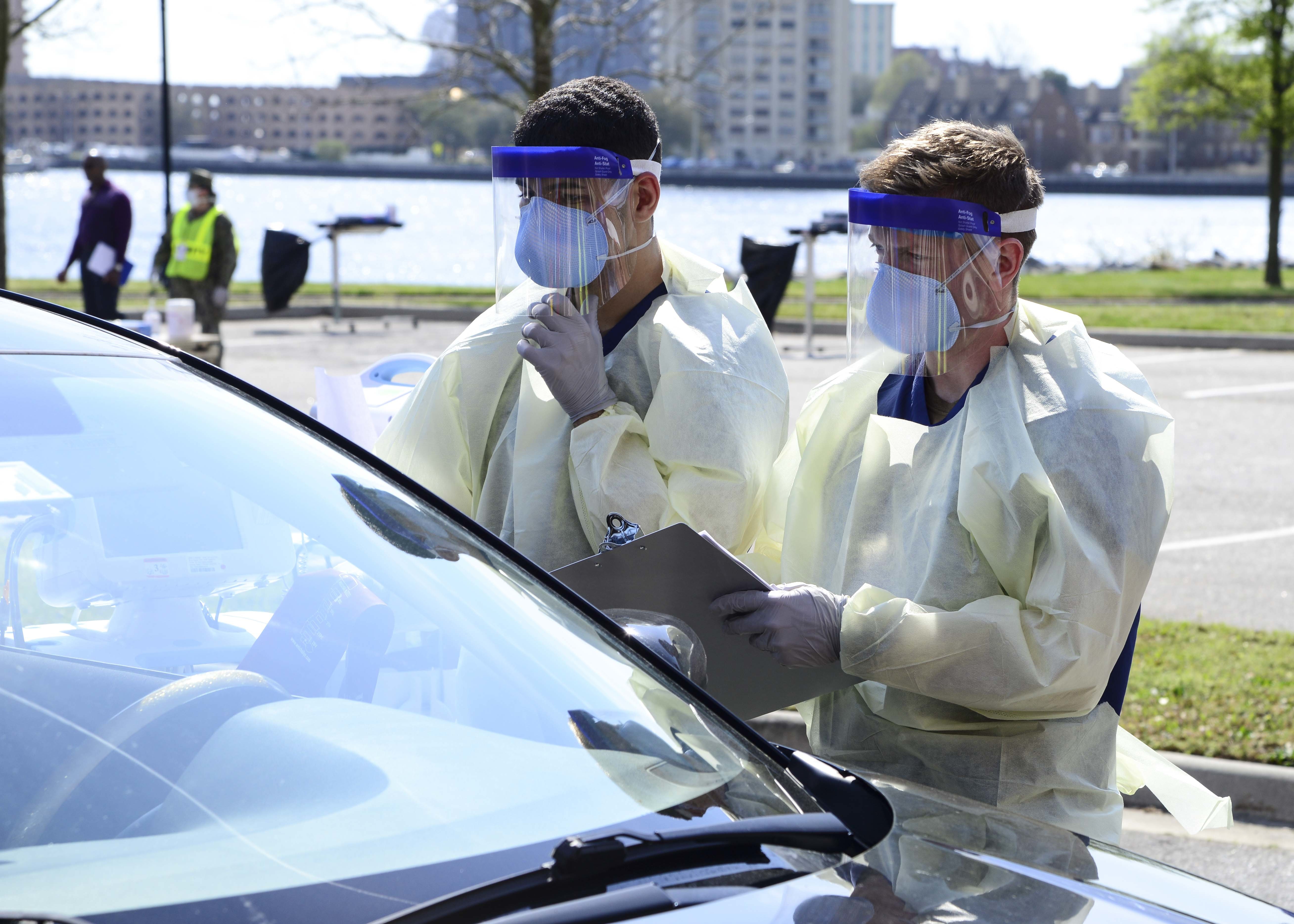
The Navy is trusting lower-level unit commanders to develop plans that both balance mission readiness with reducing the risk of exposing personnel to COVID-19 .
Recognizing commands operate on different ship platforms, at sea, ashore and in varied geographical locations, the Navy, and the entire Department of Defense, have shied away from pushing a one-size-fits-all health reporting guidance.
“You can’t get social distance in a submarine and in a tank,” Secretary of Defense Mark Esper said during a Tuesday media briefing. “Commanders and COs at all levels assess their situations.”
The Navy’s leadership is advising commands to follow as best as possible the Centers for Disease Control guidelines for maintaining social distancing and reporting to work stations.
“Our CNO and VCNO have issued wide latitude for each command to institute telework guidance. We want to ensure that our military remains safe from COVID-19 and to do that, we want to decrease the number of people who may physically be at work at the same time,” Cmdr. Dave Hecht, a spokesperson for the chief of naval personnel, said in an email to USNI News.
Commands are expected to institute a standard muster system for active-duty officers and enlisted personnel. This daily system will vary depending on teleworking conditions. However, each member of the Navy is still required to notify their chain of command they are “present and accounted for,” Hecht said. “All military personnel must also report their health status pertaining to COVID-19.”
Sick Call
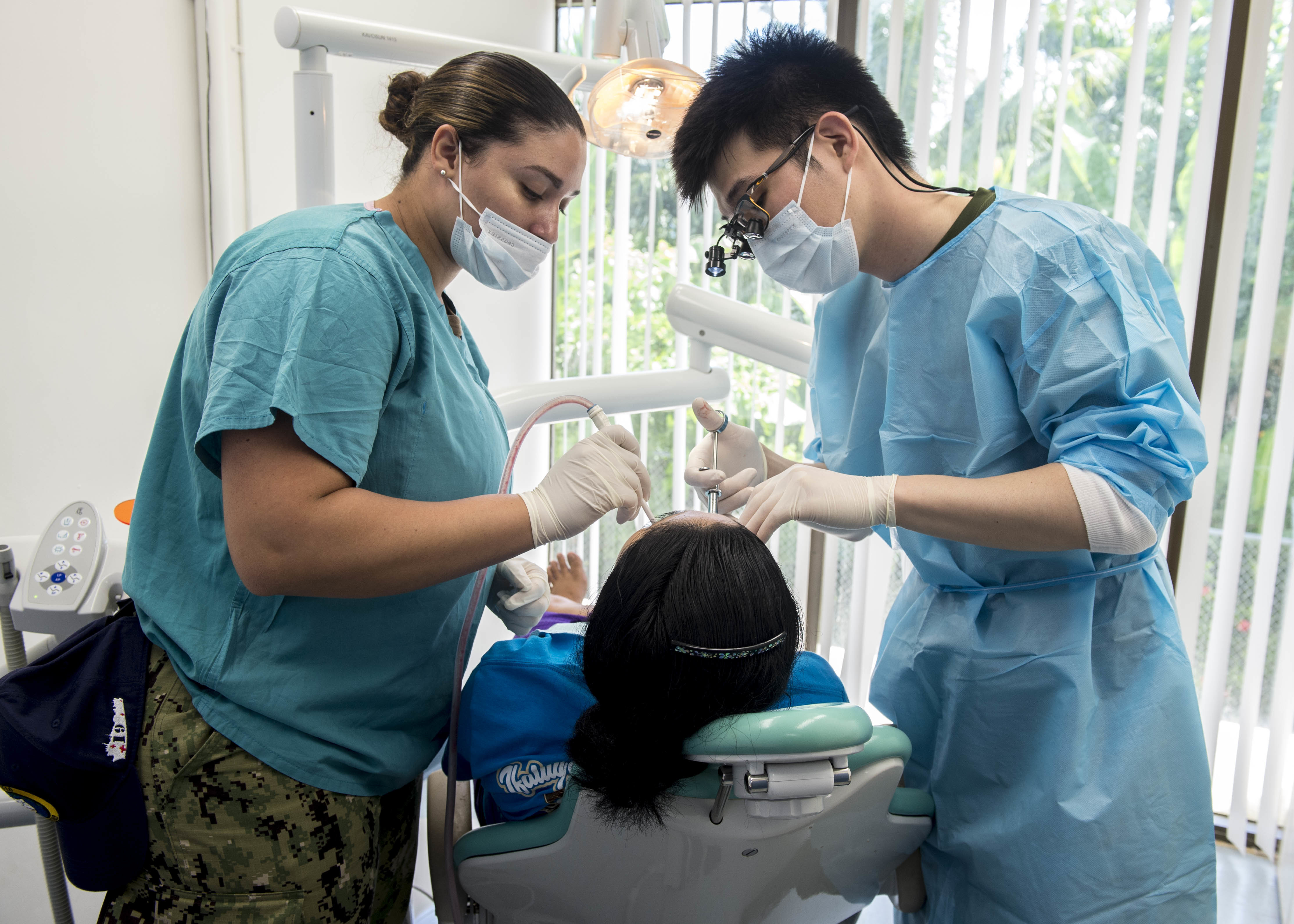
Any medically related absences are still communicated up through the chain of command. The process for checking on staff might be different for command with teleworking staff. Commands are given leeway to determine the best way to communicate with staff.
Command reports are combined into a daily report to U.S. Fleet Forces Command, which is the Navy’s command reporting Navy health and COVID-19 status reports to U.S. Northern Command, which is leading the military’s COVID-19 response in the U.S., Hecht said.
Commands are instructed to allow Navy personnel who think they have COVID-19 symptoms to remain at home and contact their nearest military treatment facility (MTF) for a determination of whether they should visit the facility by following COVID-19 screening processes.
A consult with a medical professional – either in person or online/over the phone – is required before anyone can receive a COVID-19 test at an MTF. If a test is suggested, the medical professional will coordinate where the test is to be performed, according to Tricare, the health system for the Department of Defense.
However, due to high call volumes, reaching a medical professional will likely involve being on hold. The Military Health System Nurse Advice Line suspended chat and video chat services because of high call volumes, according to MHSnurseadviceline.com.
The military treatment facilities have established COVID-19 screening processes, but these will vary among facilities, Cmdr. Denver Applehans, a spokesperson for the Navy Bureau of Medicine and Surgery, said in an email to USNI News.
Several MTFs set up screening tents outside facility entrances to reduce the risk of possible COVID-19 cases from mingling with other individuals seeking treatment for non-COVID-19 medical conditions. Tricare beneficiaries should consult their local MTF website to learn of any changes to the treatment facility’s access.
“In general, MTFs are adjusting to support requirements as needed for COVID-19, but they are still conducting care to support the force, so a sailor can still go to sick call if they feel like they need medical attention,” Applehans said.
Elective Procedures
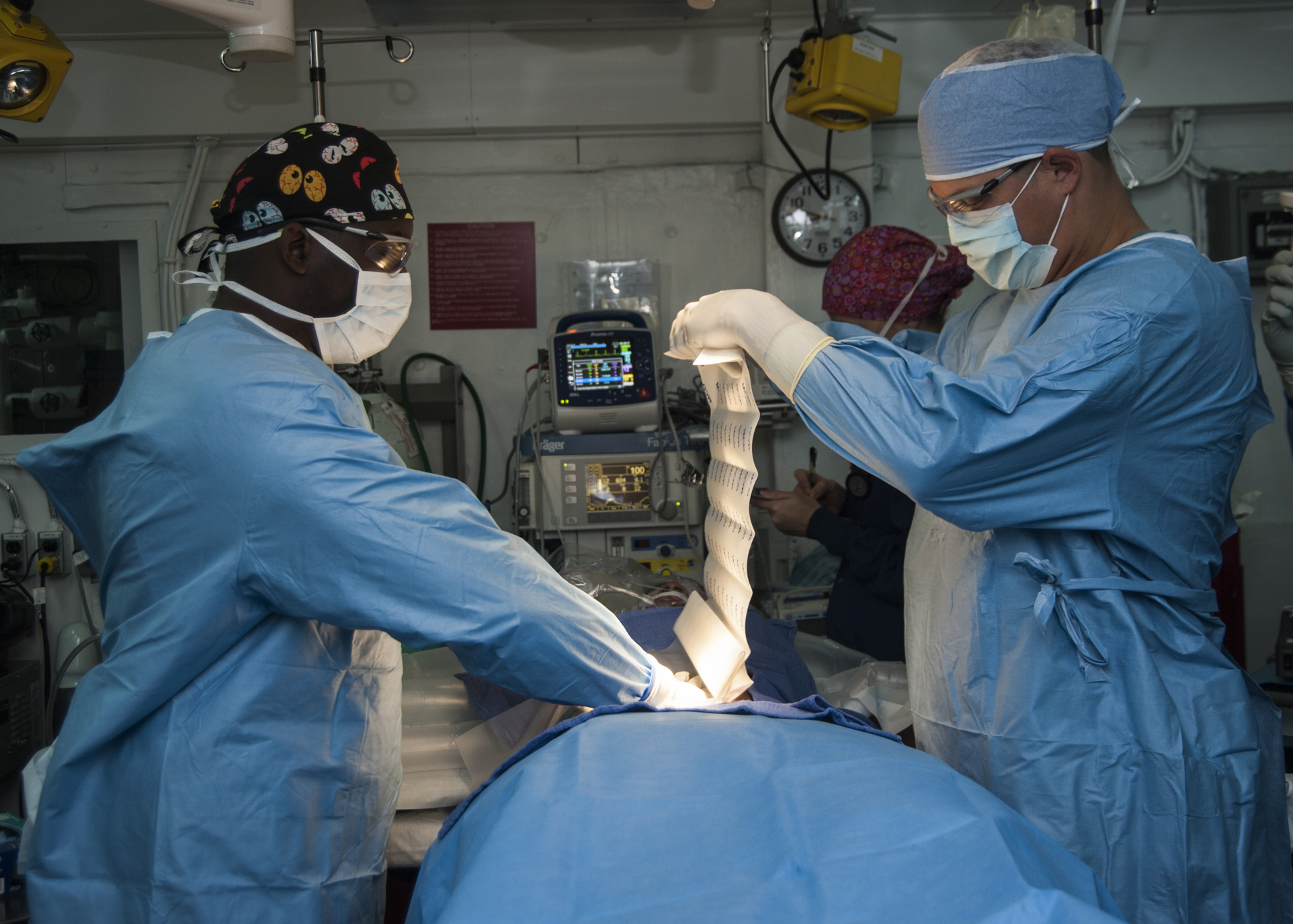
The Pentagon put a 60 delay on elective surgical and dental procedures at MTFs to reduce the risk of spreading COVID-19 and to conserve scarce medical supplies, including beds, personal protective equipment and medical personnel, according to a memo released Tuesday by Tom McCaffery, the assistant secretary of defense for health affairs.
Some elective procedures can be performed if the procedures are determined by medical professionals to be necessary to maintain the deployability of active duty or reserve and National Guard members who are activated, or if the health risk associated with delaying a procedure outweighs the current risk related to COVID-19.
“As the Military Health System prepares for a surge in demand for health care services related to COVID-19, it is essential that we take prompt action, informed by local condition and your risk-benefit analysis. I deeply appreciate your leadership role in our comprehensive response to the COVID-19 pandemic. The needs of the mission, the needs of the patient, and the local environmental condition are all important considerations,” McCaffery wrote. “As you take action, I ask that you be mindful of the impact that canceling or postponing surgery has on our patients, their families and our professional staff. While their surgeries may be elective, this is nonetheless a meaningful change to their life plans.”


